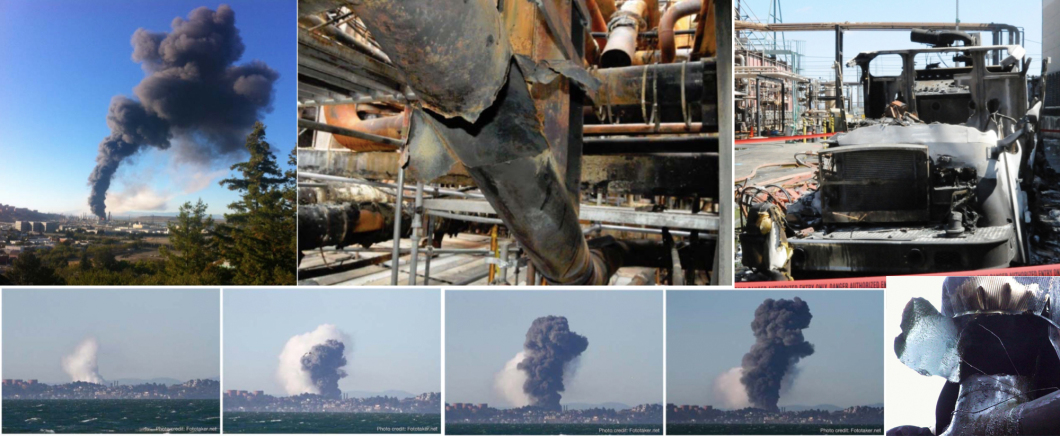11 States Accuse Trump Administration Of Illegally Delaying Safety Regulations For Chemical Plants
The Environmental Protection Agency recently decided to put a nearly two-year delay on new rules intended to reduce the number and damage resulting from accidents at U.S. chemical plants that can result in deadly explosions, fires, and the release of poisonous gas. But the attorneys general for 11 states say the Trump administration has overstepped its authority with this decision.
In January, the EPA finalized the new rule that “seek to improve chemical process safety, assist local emergency authorities in planning for and responding to accidents, and improve public awareness of chemical hazards at regulated sources.”
According to the EPA, there have been more than 1,517 accidents at the nation’s chemical plants over the last decade, leaving 58 dead and more than 17,000 injured. Nearly one-third (473) of those incidents resulted in damage that extended beyond the site of the facility. As a result, around 500,000 people were forced to either evacuate buildings or shelter in place, while more than $2 billion in damage was done to property.
Proponents of the regulation point to incidents like the March 23, 2005 explosions at the BP refinery in Texas City, TX, where 15 workers were killed and 180 injured, according to the Chemical Safety Board:

Or the Aug. 6, 2012 pipe rupture at a Chevron Refinery in Richmond, CA, where 19 workers were engulfed in a cloud of vaporized, high-temperature gas oil and 15,000 local residents ended up seeking incident-related medical treatment in the weeks that followed:

The new rule was supposed to become official in March 2017, but only days after President Trump’s inauguration, lawmakers were being pushed to undo this regulation.
On Jan. 25, a coalition of more than 20 industrial trade groups — including the American Petroleum Institute, the Corn Refiners Association, the American Chemistry Council, the Institute of Makers of Explosives, the U.S. Chamber of Commerce, and the Fertilizer Institute — made their case to House and Senate leadership to use the Congressional Review Act (which allows lawmakers to try to roll back new federal regulations they disagree with) to undo the new rule.
That didn’t happen, but EPA Administrator Scott Pruitt — who previously filed multiple lawsuits against the agency he now runs, and who has long-running ties to the oil industry — did grant an initial 90-day delay on the rule’s starting date, even though the regulation has a built-in one-year grace period before affected companies are required to comply with the emergency response procedures, and a four-year period for complying with the new accident prevention and public disclosure requirements.
Then, on June 14, Pruitt announced a 20-month delay in implementing the rule, meaning the official start date won’t be until Feb. 2019, with compliance not required until a year later — nearly seven years after the rulemaking process began.
In the meantime, the EPA says it will “conduct a reconsideration proceeding and… consider other issues that may benefit from additional comment.” In other words, the agency is using this delay to rewrite and rescind the rule in accordance with guidance from industry.
In a lawsuit [PDF] filed today with the D.C. Circuit Court of Appeals, the attorneys general for 11 states — New York, Iowa, Maine, Maryland, Rhode Island, Massachusetts, Washington, New Mexico, Oregon, Illinois, Vermont — allege that Pruitt overstepped his authority by delaying the rule without good reason.
“Protecting our workers, first-responders, and communities from chemical accidents should be something on which we all agree,” said New York Attorney General Eric Schneiderman, whose office is leading the challenge. “Yet the Trump EPA continues to put special interests before the health and safety of the people they serve.”
Want more consumer news? Visit our parent organization, Consumer Reports, for the latest on scams, recalls, and other consumer issues.

